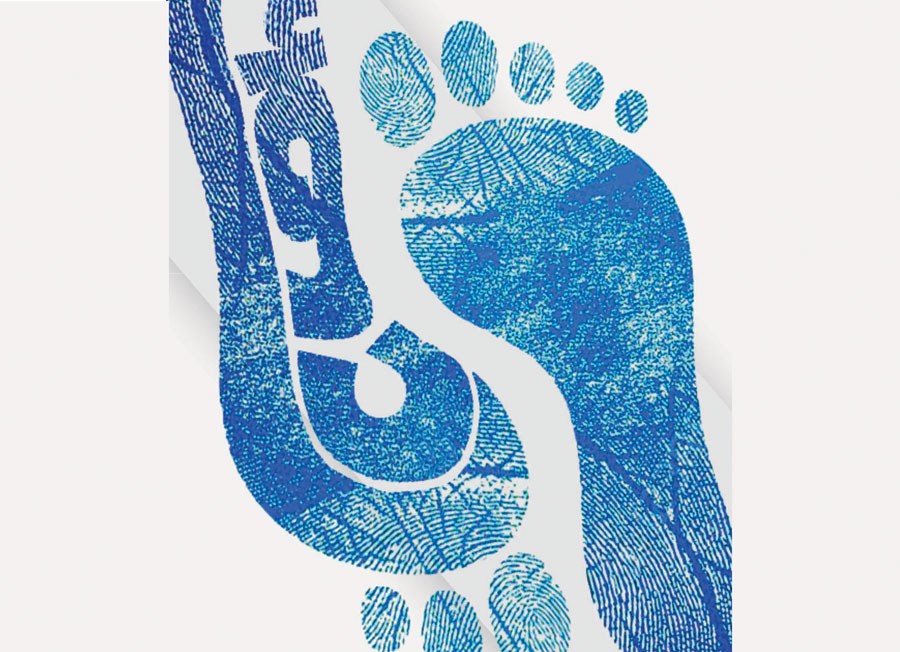
Irfan Ahmad Urfi’s first book of short stories may well be the best in recent times

Irfan Ahmad Urfi started writing short stories in the mid 1980s and prestigious magazines like Funoon, Auraq and Aaj published some of his stories over the years. However, he didn’t publish the stories in a book form and kept delaying it for decades. He was in no hurry. He read voraciously on varied topics and meanwhile wrote scripts and plays for many well-known entertainment channels of Pakistan. But he didn’t sully his fiction with the commercial stuff he was writing for livelihood purposes.
Recently, he has published his stories under the title Paon in which he has shared eleven stories with the readers.
Dipping into these stories, one learns that Urfi artfully tackles subjects that are often brushed under the carpet. He is a fiction writer who does not shy away from depicting whatever he scrutinises or comes in contact with. His sojourns to various lands helped him as he turned his experiences into fiction.
He was brought up in a religious family but also one where literature was like a staple diet. His maternal grandfather Pir Fazal Gujrati was a celebrated Punjabi poet of high standing while his uncle Khaqan Khawar was also a known Urdu poet. His family was also the custodian of a sufi shrine in Gujrat whose devotees were in great numbers. Thus, not only was he well-travelled but at the same time deeply wedded to the indigenous culture and its various aspects.
His long story ‘Laal Bangla’ is a brilliant and evocative story in which he masterfully weaves the character of an illiterate servant who is devoted to his officer and his household. With slow strokes, he paints the whole ambience which might be autobiographical in parts. He gently analyses the psychology of a bureaucratic household and pinpoints its grey areas.
In ‘Laapata’, the writer has narrated the aftershocks of cataclysmic events of 9/11. The shinning face of New York is no longer visible under the debris of fallen twin towers. Everything is topsy-turvy and people are still hoping that their missing family members will come back. The story turns out to be a vignette of collective human tragedy as it unfolds. There is a male sex worker who gets picked while standing at various points and offers his body to the aspirants in lieu of some bucks as he has fallen on hard days due to financial waywardness. The subject was handled quite deftly by the writer.
‘Bun Budha’ is also a wonderful story in which the author seems to be at his best while narrating two parallel stories and connecting them at the end. And how can one forget the confused lady who has to work at a sex toy shop due to joblessness. At heart she feels guilty for doing such a job. Living in a western country, she has to wear many masks to appease the society.
Irfan Ahmad Urfi is a fine craftsman who does not seem too keen on writing plain realistic stories. When he sees human existence and its various aspects, he tries to experiment in technique and style like a well-read and serious writer of fiction. He is only answerable to himself.
He focuses attention on characters that the society does not care about. Here, in the pages of his book, we find people who feel attracted towards the same sex as well as a few inveterate pedophiles who are on the prowl. One rarely finds such characters in Urdu fiction and Irfan Urfi deserves our plaudits for handling such subjects in a balanced way.
He writes creative prose which definitely is an outcome of his indepth command of Urdu literature and poetry. One must add that at certain places he seems too obsessed with weaving a flowery and loaded sentence which might distract the reader. Paon will definitely be a bit of a rude shock for some readers and writers who are fed on sugarcoated stuff that is too far from reality. Irfan Ahmad Urfi has taken a giant leap by venturing into forbidden territories and unexplored areas of fiction.
All said and done, Paon that hit the book shelves just a month ago may be the best book of short stories in recent times. Caring little for what is sacred or profane, he has been able to carve his own path.